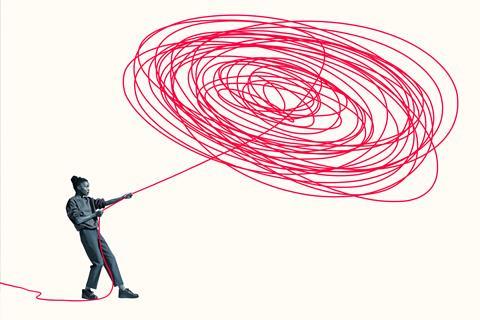Discover how training in pedagogical content knowledge for one topic can improve your teaching
To be effective in the classroom, trainee teachers must develop their knowledge base. Pedagogical content knowledge (PCK) is the specific practical knowledge required to support learners in grasping and applying subject understanding. PCK distinguishes chemistry teachers from chemists. It’s also topic-specific, so its development is time-consuming, given the number of topics within chemistry.

In a recent study, Sevgi Aydin-Gunbatar and Fatma Nur Akin provided teachers with PCK training on a specific chemistry topic. They explored the trainees’ abilities to apply their knowledge in a different topic area.
Transformative training
The study involved 13 trainees on a four-year programme in Turkey. Their PCK training took place over 12 weeks. The training emphasised the process learners follow to master topics, known as transformation. It also focused on content knowledge of particle motion and organisation in different states, and the sequence of concepts that make up the topic. Trainees explicitly discussed the points that make the topic difficult for learners. Later, the group addressed the difficulties of selecting teaching methods.
The trainees played the role of students in a mock lesson. The researchers demonstrated conceptual change strategies to address the alternate conception that matter has a continuous structure in which there is no empty space. The researchers showed how to assess students’ ability to link concepts with concept maps. They used carefully chosen language throughout so trainees became accustomed to the role of the different components of PCK in transformation, such as ‘knowledge of learners’ and ‘assessment of learners’.
The researchers probed the teachers’ abilities to independently develop PCK in acid–base equilibrium, which was not covered in their training. They found that 11 of the 13 trainees significantly improved their PCK in acid–base equilibrium.
The bigger picture
Qualitative data showed that trainees improved their abilities at outlining the big ideas of the topic and at sequencing different concepts to support learners. Before their training, the teachers were unsure what to teach or how to identify the relevant big ideas. The participants also improved their ability to identify what students would struggle with and possible alternate conceptions. They could also identify suitable teaching and assessment strategies more effectively.
Teaching tips
- Read Building pedagogical content knowledge for more insights into developing PCK.
- Reflect on what students find difficult. Try to see things from their perspective to anticipate their difficulties and alternative conceptions.
- Ensure teaching strategies will help students address difficulties.
- Select assessment strategies that will identify problem areas. Use assessment outcomes to drill further into the difficulties students have experienced. Although there is a place for testing recall of concepts, assessment methods that provide insight into student understanding will be more valuable.
- Provide feedback that will help steer students in the right direction.
- Developing PCK is a career-long activity, and discussing it with colleagues is one of the most valuable tools to support it.
David Read
References
S Aydin-Gunbatar and F N Akin, Chem. Educ. Res. Pract., 2021, 22, DOI: 10.1039/d1rp00106j









No comments yet